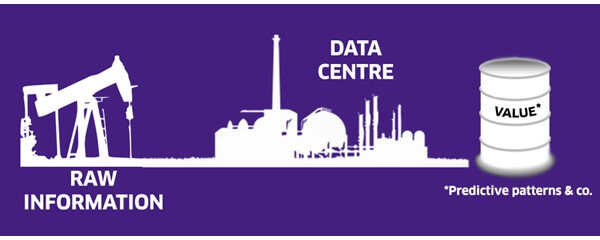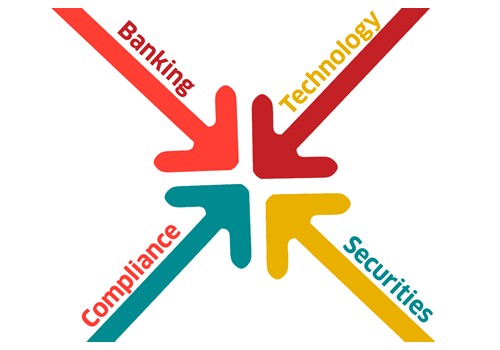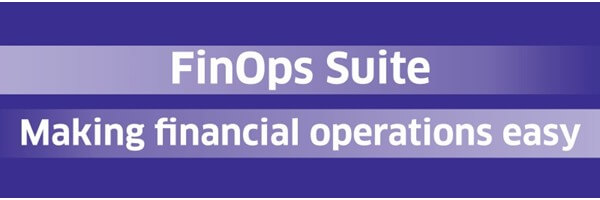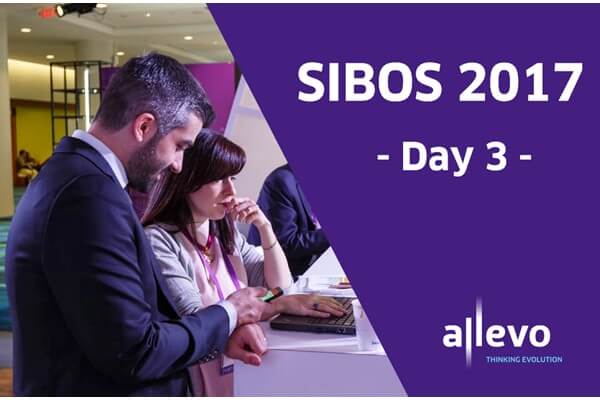…and then there was Wednesday at Sibos Toronto and along with it came highlights on ISO 20022 implementation, open banking threats and opportunities, international payments, cyber risks and malicious insiders, global uncertainties in the financial industry, correspondent banking, instant payments, RegTech, banking APIs, disruption, innovation. Quite a handful.
Plenary – The Future of Money
We liked this analogy: “Data centres are the oil refineries of the digital age, extracting value from raw information in the form of predictive patterns and other insights.”

So we decided to illustrate it:
Bottom line: The financial industry must extract more value from their platforms and the abundance of data they possess!
Fine print: Financial services organizations should move from a transactional business model to one of enablement, using data to drive bigger strategic business decisions instead of merely influencing pricing and risk.
Australia and the New Payments Platform
Australia’s NPP caught our attention and the large amount of flexibility it entails should be an inspiration for us all. While Australia’s take on open banking is no secret, and we’ve previously scratched the surface, this particular project promises the launch of a whole new era.
“It’s a major industry initiative to develop brand new infrastructure, to enable fast, versatile and data-rich payments 24/7.”
– Katrina Stuart, NPP Australia –
Katrina also talked about the huge industry effort in terms of collaboration: “I think one of the key successes of the platform has been to define the areas where the financial institutions involved will collaborate, emphasizing that the collaboration needs to be around the infrastructure itself, around the data and the message standards, and then there will be the competition around the product layer as well as the customer interfaces.”
Paul Franklin (National Australia Bank Ltd.) talked a bit about OSKO, the first innovative product to be delivered via NPP, which provides “the ability to make a person-to-person payment with service levels attached to it, which will give consumers the promise that their payments will be made within a number of seconds.”
The infrastructure is distributed between gateways that are held by each of the participating institutions, so it’s not a single hub in the centre of the network. Also, the architecture has been built with the ability to add new products on top of the basic infrastructure: overlay services.
In terms of message flows, Paul added: “We’ll be sending a clearing request and getting a confirmation back before we settle; line by line settlement is an unusual thing, so this is essentially real time gross settlement on a vast scale.”
Stay tuned for more insights from our final day at Sibos.
Day 2 of Sibos Toronto just flew by and our two musketeers on the job, Ioana and Mihai, have some fresh intel for you.
Banking Stream – Day 2
An early panel on blockchain had a really tough competition from the World Payments Report 2017, by Capgemini and BNP Paribas.
Among talks on global and regional non-cash payments volumes, APIs as key enablers for a cohesive financial ecosystem and cybersecurity related challenges, here’s what caught our ears:

“New regulatory environments are enabling exciting new financial services business models and payments teams are the frontrunners in crossing transformational borders within many banks through innovative thinking.”
Christophe Vergne, Capgemini
Add to that two other comments on this report (made ahead of Sibos) and the whole picture is slowly unveiled:
“Organizations operating across borders face continuing challenges to reconcile diverse domestic rules that cut across any initiative to work toward uniform modes of operation.”
Chye Kin Wee, BNP Paribas
“Regulatory initiatives are having a big impact on the Payments industry. In the EU, PSD2 is opening the possibility of disintermediation for some banks while driving new value propositions for others.”
Jeroen Holscher, Capgemini
Compliance Stream – Day 2
An interesting workshop on reputational risk was followed by talks on KYC compliance, the collaboration between the financial services industry and FinTechs, future trends in sanctions and the future of financial Intelligence sharing.
Still ringing in our heads:
The cost of compliance is high and the price of failure is even higher.
Securities Stream – Day 2
A morning conversation with Lieve Mostrey (Euroclear) and Marc Bayle de Jesse (ECB) addressed themes of interest such as market infrastructure evolutions, the impact of geopolitical changes, opportunities for greater levels of efficiency and market harmonization, the role of FinTech, and much more.
Mix in a forum on “APIs for beginners” (by SWIFT) and a conference on what the future could hold for the post-trade industry, distill it properly and you get… a very concentrated pill:
Standards play an important role in a rapidly changing banking landscape.
Technology Stream – Day 2
Cross-border payments, instant payments, APIs, blockchain, risk management, user experience… whichever topic you choose, they all depend on technology more and more and there’s no going back. Since tech is in our blood, should you need a payments solution for your company (be it a financial institution, a SME or a large corporation), we’re here for you.
Oh, and… remember SWIFT’s CSP? Actually, it’s not like something you could forget, but if you want to keep up with the latest updates from Sibos, you now know whom to ask 🙂
Over and out. Also, ready for another Sibos marathon, Day 3.
Day 1 of Sibos Toronto came to a close, but not without fresh insights from our dear colleagues, Ioana and Mihai, who are representing Allevo this year at the world’s premier financial services event.
Picking… pickles
Picking out which panel sessions to attend was quite a pickle, as several topics of interest were scheduled for debate at the same time, structured around four main streams: Banking, Compliance, Securities, and Technology, all under one big umbrella, which is the theme for Sibos 2017: “Building for the future”.
The first day’s keywords were none other than the ones that have been on our lips all year long: blockchain, cyber security, open banking, FinTech, artificial intelligence, KYC and all that jazz. The days to come also look promising in terms of innovation, growth, development and global trends.
The main focus of the day was, without doubt, the opening plenary by Dave McKay, CEO of RBC, whose words hold the promise to echo not only throughout this conference, but also in the years to come:
“The future success for most businesses relies on data.”
He further emphasized how API advancements are opening up opportunities, while holding trust and security at the heart of all processes.

Going with the Streams
Instead of simply going with the flow, we sampled some panel sessions from each Sibos Stream and we’ll definitely be back for more Compliance panels in the days to come. In fact, we’re looking forward to what the whole conference holds in store for us as this is a great opportunity to discuss the landscape and challenges that we all face.
“Grow and develop, explore and debate, transform new relationships, build, innovate” – it sounds like a great chorus, right? We’re whistling to this tune while breathing in the future of money, how we use data, commercial enablement, understanding the customer, cybersecurity, trade, finance, digitization, AI, technology, data, platforms, innovation, geopolitical shifts, modified foreign policies, disrupted trade flows, global uncertainties. Whoo… now we’re catching our breath as we’re delving into the second day of Sibos (that you’ll hear more about tomorrow).
Last but not least, for more info on Innotribe, SWIFT’s initiative to enable collaborative innovation in financial services, just follow Ioana on Twitter.
As every year, Allevo attended Sibos 2017, held this time in Toronto on 16-19 Oct.
Insights from the conference can be found on our blog.
As previously announced, we’re developing an innovative software solution, FinOps Suite, as part of the TOSS Project, which is part of the Competitiveness Operational Programme 2014-2020.
Here’s what we’re planning to achieve and how you can benefit from it, from A to (almost) Z!
Firstly, we found a name for the application that clearly says what it does: FinOps Suite – Making financial operations easy.

FinOps Suite will consist of a collection of features that will:
A. Integrate payments initiated by corporate or SME ERP, HR and other internal systems. These usually are supplier invoices, all sorts of taxes, paychecks, partial payments, utility bills etc.
B. Support automated or manual initiation of payment instructions
C. Offer various types of reports that can sort and group payments by type or by paying company, according to internal nomenclature
D. Define templates and lists of templates for multiple or recurring payments
E. Manual payment edit
F. Enrich payments with useful information for recording, monitoring, reconciliation and reporting
G. Generate reports grouping payments by: supplier, corresponding account in the accounting plan, location, reporting codes
H. Payment validation
I. Detect any duplicate instructions, based on configurable criteria
J. Configure payment amount limits for each supplier; automatically detect when exceeding configured threshold and investigation capabilities
K.Check supplier accounts against black lists
L. IBAN format validation
M. Investigate, edit, cancel and/or authorize payments instructions
N. Generate standard SWIFT messages for payments (MT101, ISO20022 pain.001)
O. Initiate accounting entries for manually created payment instructions
P. Import bank account statements
Q. Route incoming messages (receipts or confirmations) to internal applications (ERP, accounting, HR, etc.)
R. Reconciliate payments with supplier invoices
S. Reconciliate receipts with issued invoices
T. Reconciliate accounting entries with bank account statements
U. Generate predefined reports and customize them (supplier reports, banking reports, duplicates, cancelled instructions, payment instructions search by various criteria)
V. Define and manage user groups, create role profiles
W. Audit user activity
X. Archive transactions and report archived data
Y. Benefit from extensive product documentation – source code, instructions for installing, using and managing the executable code of FinOps Suite
Z. Spread peace and love 🙂
Interested much? Give us a sign for more info. We’ll definitely accommodate your requirements, as we always do with our highly customizable products.
In Romanian:
Pentru informatii detaliate despre celelalte programe cofinantate de Uniunea Europeana, va invitam sa vizitati www.fonduri-ue.ro. Continutul acestui material nu reprezinta in mod obligatoriu pozitia oficiala a Uniunii Europene sau a Guvernului Romaniei. Proiect finantat in cadrul POC, Axa prioritara 2, Acțiunea 2.1, Prioritate de investitii 2b. Cod MySMIS: 115724, Nr. Contract Finantare: 101/16.08.2017.
















